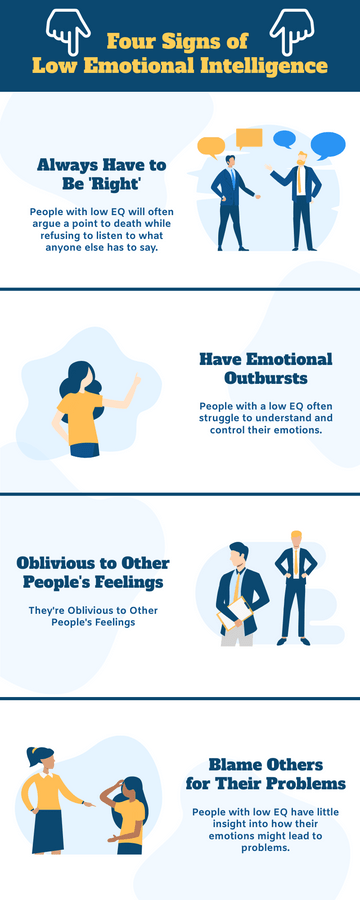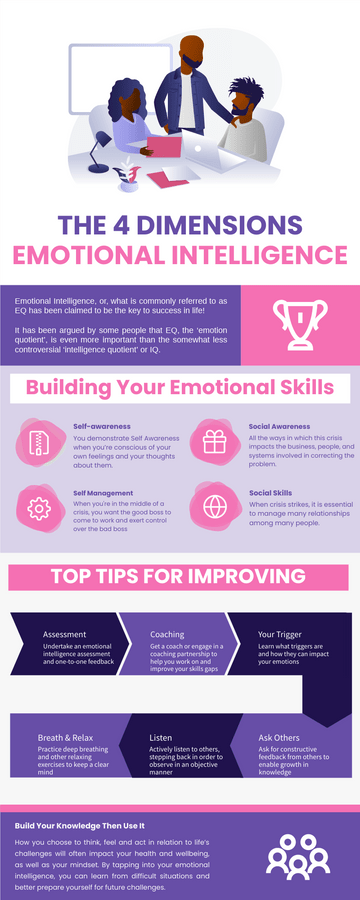The six characteristics of high EQ and low EQ
IQ often determines a person’s lower limit of achievement, while EQ determines a person’s upper limit, and the height a person can reach is often determined by his EQ.
High EQ vs Low EQ
Emotionally intelligent people are always in a good position in life and work because they are not only good at recognizing the emotions of others, but also good at controlling their own behavior and emotions.
In life, people with high EQ will feel as comfortable around them as if they have been best friends for years. The most typical characteristic of a low EQ person is the inability to put oneself in others’ shoes. We see this all over the place. People with low EQ often don’t realize how their actions affect their partners.
The Six Characteristics of High EQ and Low EQ
So what’s the difference between people with high EQ and those with low EQ?
Some charities will not be able to take big furniture pieces or electronic products with them: check with the store if in question. There will be no selling of broken or unfinished objects.
High EQ
- Good at listening and controlling emotions, with empathy to make people around feel comfortable and trust.
- Looking forward to the future, have a tolerant heart, full of enthusiasm for life and work, and understand to adjust their emotions.
- Know how to put yourself in others’ shoes, can accept others’ opinions with an open mind, do not deliberately reveal people’s shortcoming.
- Who can respect and be patient with the people closest to me. I can calmly face the past, be confident about the future, and cherish and enjoy every moment of the present.
- Who clearly recognize their strengths and weaknesses, know how to give full play to their strengths, make up for their own shortcomings.
- He who knows his own ability and the bottom line, dare to refuse the unreasonable, or beyond the reach of the things. Don’t promise and then complain.
Low EQ
- Always try to outdo others verbally, expressing yourself, regardless of how others feel.
- People are often dominated by negative emotions. They complain and spread negative energy around.
- Ask questions you knowingly ask, talk to people’s sore spots, like to point fingers at other people’s lives, but can’t listen to any opinions of others.
- Who always gives the best temper to strangers, the worst patience to relatives, lack of awareness of the huge difference between “intention and result”, think that kindness should have good feedback.
- Those who like to be clever, vain, and show off. Always want to rely on others, rely on the relationship, rather than want to rely on yourself.
- Used to living in the eyes of others talking about them. Caring too much about what other people think of you, even irrelevant ones.
This post is also available in Deutsche, Español, فارسی, Français, Bahasa Indonesia, 日本語, Polski, Portuguese, Ру́сский, Việt Nam, 简体中文 and 繁體中文.




















